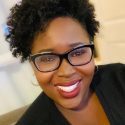Black History Month: Celebrating Black women in STEM
Story by Liz Do & Tristan McGuirk
In celebration of Black History Month, U of T Engineering invited students and alumni who identify as Black (including African, African-Canadian, African-Caribbean ancestry) and women to reflect on their experiences in STEM, the barriers they’ve faced in their career journeys, their inspirations, and the advice that they have for young Black women students.
The perspectives of these six women exemplify the diversity of their lived experiences — and illustrate the ongoing need for Black inclusion and systemic change in STEM fields.
Meet Our Students & Alumni
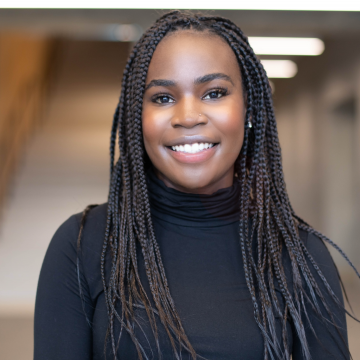
Stephanie Obeta is a
third year chemical engineering
student and Finance Lead, NSBE, U of T Chapter

Memma Uponi is a second year mechanical engineering student
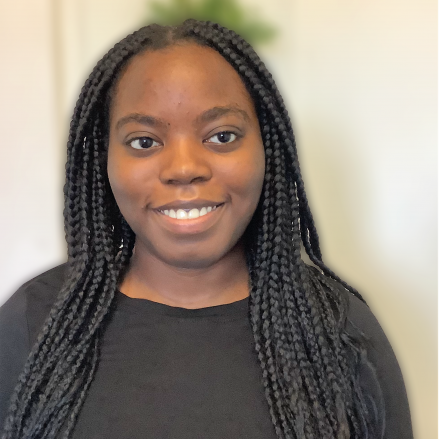
Bettina Oghinan is a TrackOne engineering student
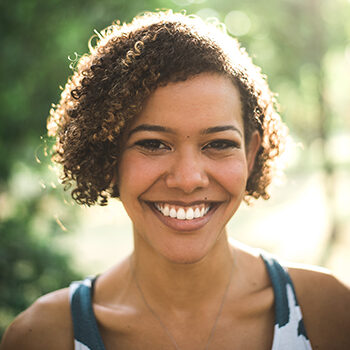
Dimpho Radebe,(IndE 1T4+PEY) is a year one PhD candidate in EngEd
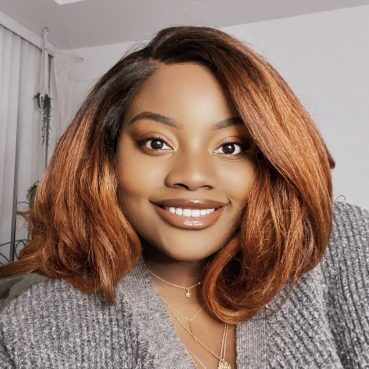
Keziah Nongo is a third year civil engineering student
and Vice President, NSBE, U of T Chapter
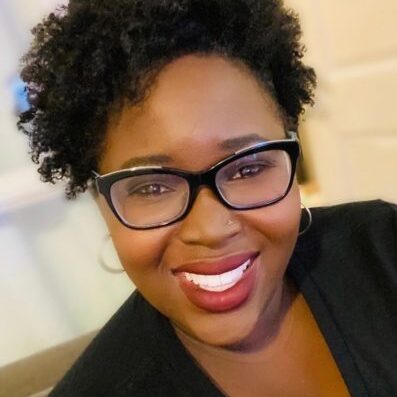
Kelly-Marie Melville (ChemE 1T2 + PEY) is a
Senior Analyst, Sales Enablement at Softchoice
On Inspiration...
"My biggest inspiration is Chimamanda Ngozi Adichie, a Nigerian author and feminist. I look up to her a lot because she comes from the same ethnic background as I do, and has broken so many barriers within Nigeria and around the world. I can trace back my beginnings with feminist ideology to watching Chimamanda's interviews/talks and reading her novels. She has inspired me to continue to persevere in a society which may not always be accessible to individuals like me, while creating a path for the future generation to follow.”

– Stephanie Obeta
“As there is a current lack of representation of Black women in engineering, I wouldn't say who but what has inspired me. I am inspired by the endless possibilities within science and engineering. I am inspired by women who have challenged the status quo by even choosing to follow the path of engineering. I am inspired by the growth I see with Black women finally taking a seat at the STEM table where we rightfully belong!”

– Memma Uponi
“My sister is currently in her undergraduate year looking to go into medical school. An unsteady first year and health complications left her with less than appealing grades for applications. Despite this she rises up every day with purpose and hope — not because she believes she’s not at a complete disadvantage into entering medical school but because she uses her past as a steppingstone rather than an impediment towards the future.”

– Bettina Oghinan
“I have drawn my inspiration from many people, and so I cannot point to a few. I have learnt different lessons from each person that has inspired me, from Maya Angelou and Nelson Mandela, to my mother, father and sister, grandmothers and grandfathers, mentors and teachers, friends, and other youth. All of them have inspired me at different points along my path. As the South African word "Ubuntu" describes, ‘I am, because you are.’”

– Dimpho Radebe
“My parents. I think it’s a cliche for a reason. There’s no beating the sacrifice, generosity, and encouragement of loving parents. They’ve always worked for something better for my siblings and I; they inspire me to work for something better for myself.”

– Keziah Nongo
“There are many people who inspire me. I believe that I draw most of my inspiration from women, particularly Black women. From notable influencers like Maya Angelou, Shonda Rhimes, and Kamala Harris to friends, family, and colleagues, their stories, abilities, and contributions always motivate me to be the best version of myself. I always feel like nothing is too big or out of reach when I see Black women win.”
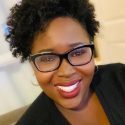
– Kelly-Marie Melville
On Barriers Faced...
“Within academia, I find that I often have to work twice as hard to receive half the recognition as my non-Black peers. Sometimes I feel like I am under immense pressure to always over-perform, because in spaces where I am in the minority, my actions indirectly represent my community and the way that others view me. In academia, I often get the impression that stereotypes relating to my identity as a Black woman affect the way that others view me, so I often feel like I have to ‘prove myself’ as competent and capable, whereas my non-Black peers do not face the same level of scrutiny.”

– Stephanie Obeta
“Being a woman in engineering I have faced my fair share of rude comments and discouragement from male classmates right from grade school. It's not easy to be different but the best part is that I never gave up. Another barrier I face is finding a mentor or some sort of guidance within industry because there are so few Black women in engineering that are spoken about. It's been really difficult trying to navigate a career path when there aren't any examples.”

– Memma Uponi
“Many of my peers have diverse past experiences in a multitude of areas from the arts to the sciences. Looking back, I often feel as though I didn’t have such a range of experiences and therefore often hesitated with new opportunities. While it’s true that some doors were and are still closed to those of certain genders or race; sometimes our greatest barriers can be our own selves and lack of bravery.”

– Bettina Oghinan
“The greatest barrier I have faced has been the lack of awareness and understanding in Canada that systemic racism and discrimination exists within all institutions and all levels of society. One symptom of this barrier is a lack of representation. I have not seen myself or others like me represented within leadership levels of many organizations within academia and industry. This has made it somewhat unsafe for me to feel completely comfortable being who I am in certain spaces and it has also placed a burden on me and other racialized people to make the case for changing these systems.”
"I recognize that this is a loaded response, but I feel this is a very loaded and burdening question. I don't have a specific answer for this, because many of the barriers are anecdotal (i.e. my inherent sense of a barrier), but the challenge with systemic barriers is that they often cannot be readily proven. For example, I believe I have faced barriers applying to jobs because of my name, but there is no way for me to prove this."

– Dimpho Radebe
“External and internalized comparison. Stereotypes around Black women are something that we either have to actively combat or deal with in the ‘background noise’ of our day to day. I frequently get passing ‘compliments’ that insinuate that they weren’t expecting that ‘from someone like me.’ We’re subjected to a narrative that is used as a reference for how people interact with us, and inherently how we interact with ourselves.”

– Keziah Nongo
“One thing I have learned throughout my career is the importance of owning and championing my voice. You should never let yourself be silenced or allow someone else to take ownership of your ideas. In my experience, most of the time this can happen in a subtle way. It may be someone repeating my idea in a meeting after I proposed it. Sometimes it happens through comments like ‘You should tone it down’ or ‘Let’s give someone else a chance.’ Whether in writing or in speech, my voice is not just the way in which I communicate my ideas and thoughts, but it’s part of my identity. Being silenced by others or by myself is not an option in today’s world.”
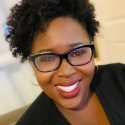
– Kelly-Marie Melville
On the next generation of black women in stem...
“My message to young Black female students is to always remember that you belong in academia and in academic spaces. Your accomplishments matter, and your hard work will pay off. It may be difficult sometimes, and you may feel like you aren't in the right place, but you matter and will make a wonderful addition in whichever space or community you choose to apply yourself to. You are strong, smart, and capable, and you can accomplish absolutely anything that you set your mind to.”

– Stephanie Obeta
“I would say, 50 years down the line don't allow yourself to look back and say, ’I should've’ or ‘I wanted to.’ The best decision you can make for yourself is following your passions and interests despite all the challenges that arise. Be bold to be part of systemic change and have fun while doing so!”

– Memma Uponi
“It’s highly likely you won’t see many people who look like you or act like you. That often makes us feel out of place, and could stem feelings of inadequacy. The truth is though you might walk into a room and be the only Black female or even yet simply female; you are truly not alone. As you are there, you belong there and there have been and will be countless courageous Black women who continue to be that change that the world needs. So when you stand upon the platform that STEM provides, step up with confidence from within yourself and be a part of that change.”

– Bettina Oghinan
“Education in STEM can open up so many possibilities for different career paths. The skills that you will learn pursuing a STEM degree are so valuable, and you will learn how they can be applied in many different contexts. If you're excited about the opportunity to solve complex problems for positive societal change, I would encourage you to find what you are passionate about and look into how your STEM degree can connect to that passion. I also want to emphasize that you are never alone. Some have travelled this path before you, and others will follow behind. It is important to reach out to others to find a community of others where you feel you belong.”

– Dimpho Radebe
“Work on you, for you. Have fun, explore interests — we’re truly so young! But at any age find balance, and protect your peace. Thoughts multiply and manifest, and energy flows where intentions goes.”

– Keziah Nongo
“Today, more companies and organizations are realizing that diversifying leadership is critical to driving greater growth and innovation. It is now a business imperative. This is an opportunity for more Black women to strive in leadership roles within STEM. There is so much room for Black women to not only enter but to dominate and become leaders. Leaders in STEM can shape the world as we know it, into the world as they see it. As Black women in STEM, with our unique experiences and rich heritage, we do not just have the opportunity to change the world; we have everything needed to improve it.”
